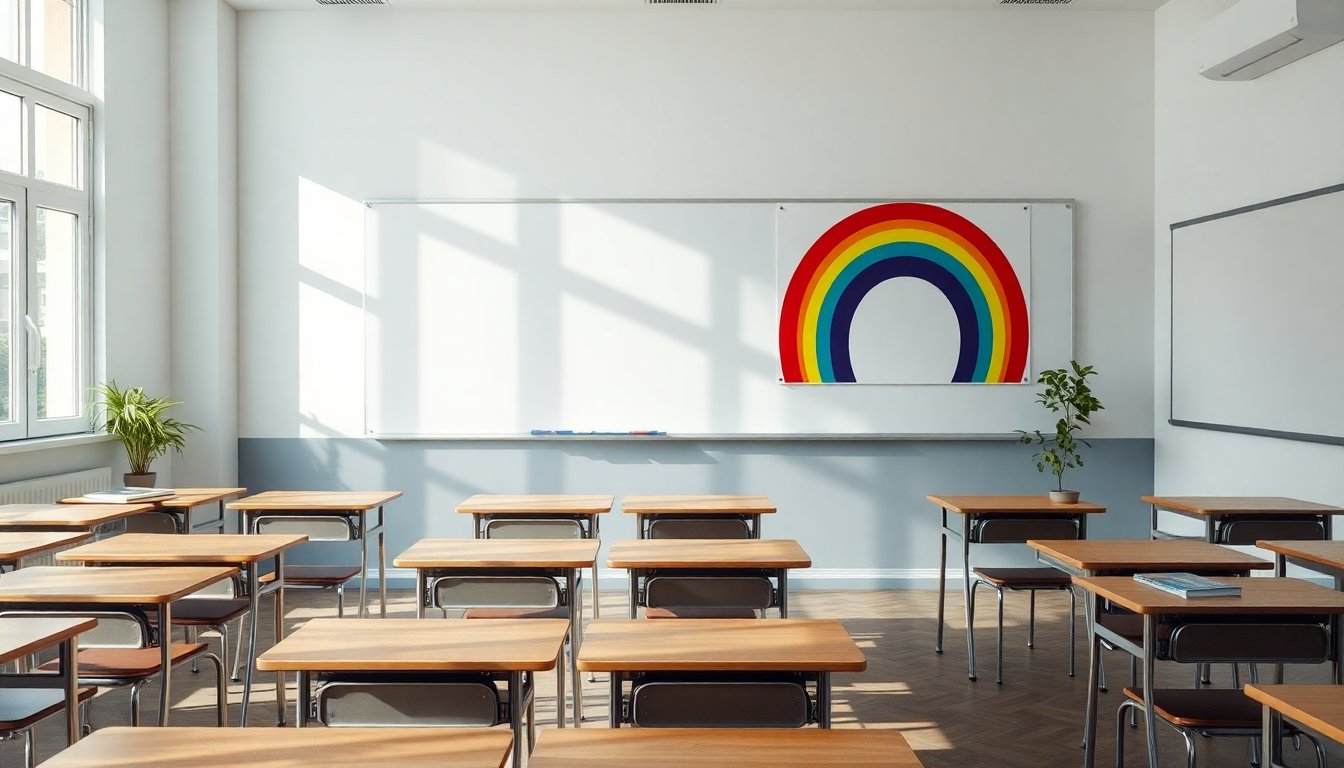Table of Contents
The political landscape in Italy is experiencing notable changes under Prime Minister Giorgia Meloni’s leadership. Recent proposals seek to impose restrictions on discussions of LGBTQ+<\/strong> identities in educational settings. This initiative reflects a wider trend seen in several European countries and the United States, raising alarms among advocates for gender and sexual diversity<\/strong>.
Proposed legislation and its implications
A new legislative framework could restrict discussions surrounding LGBTQ+ issues in schools. This initiative aims to alter the educational discourse on gender identity and sexual orientation. If enacted, the proposed changes would not only limit classroom dialogues but also introduce stricter regulations on the gender affirmation processes available for transgender minors.
Historical context of LGBTQ+ rights in Italy
Italy’s journey regarding LGBTQ+ rights has been marked by significant ups and downs. Recent advancements include the legalization of civil unions. However, the current political landscape indicates a potential regression. Proposed legislation could signify a troubling trend away from inclusivity, mirroring challenges faced in other regions. Advocates express concern that such a shift may impede the social acceptance of diverse sexual orientations and gender identities.
Wider trends across Europe and the U.S.
Italy’s approach to limiting LGBTQ+ discussions in education reflects a broader trend seen in numerous countries across Europe and various states in the U.S. These measures are often framed as upholding parental rights and ensuring educational appropriateness. However, such actions frequently exacerbate societal divisions, igniting heated debates over the delicate balance between freedom of expression and censorship.
Impact on young individuals
The proposed laws could have significant consequences for young people navigating their identities. Educational institutions play a crucial role in shaping perspectives, and restricting discussions about LGBTQ+ topics may lead to feelings of isolation and misunderstanding among students. The lack of inclusive education could create an environment where discrimination flourishes, making it challenging for marginalized groups to access necessary support.
Advocacy and resistance
In response to recent legislative proposals, various advocacy groups are actively opposing the restrictions. Organizations focused on LGBTQ+ rights are mobilizing to promote awareness and challenge the legislation. Their initiatives underscore the necessity of inclusive education and the creation of safe environments where all students can explore gender diversity and sexual orientation free from discrimination.
Calls for dialogue and understanding
Advocates emphasize the importance of open dialogue within communities. They urge policymakers to consider the long-term consequences of limiting discussions on LGBTQ+ topics. Fostering understanding and empathy in educational settings is essential for creating a more accepting society. By addressing misconceptions and providing accurate information, schools can play a critical role in combating homophobia and transphobia.
Potential impact of educational restrictions in Italy
The proposed restrictions on LGBTQ+ discussions in Italy’s educational institutions raise significant concerns that could influence policies across Europe. As countries navigate the complexities surrounding gender identity and sexual orientation, the implications of these legislative measures remain unclear. Advocates, educators, and communities must collaborate to foster an inclusive environment where all individuals, regardless of their identities, can feel secure and affirmed within their educational settings.


